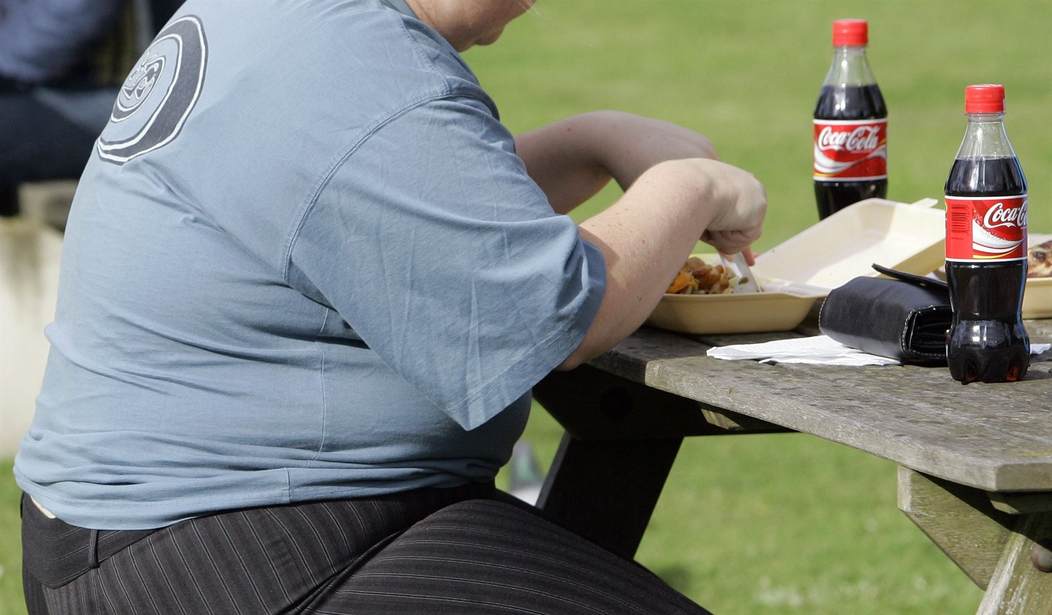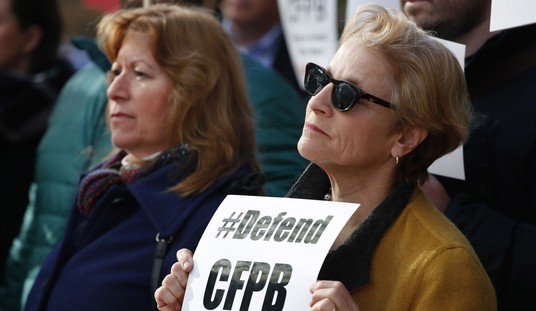Like a lot of guys my age, I'm carrying a little extra weight. The fact that I make my living tapping at a keyboard doesn't help, but I walk a lot, and maintaining a rural homestead keeps the fact that I enjoy a good meal (and my wife is an excellent cook) under control. Just last Sunday, I was out prepping our place for the upcoming winter, including taking care of our fall recycling, which in Alaska means "burning the burn pile."
There is, however, a rather enormous difference (hah) between "carrying a little extra weight" and "morbid obesity." Obese people face serious health risks in addition to the various other difficulties their girth causes, not the least of which involves shoehorning them into airline seats. But, just as every action has an equal and opposite reaction, so too does every serious health condition have people who will wave their hands and go, "No, no, fat is beautiful!"
Yes, there are fat activists, and their latest pet hate is weight loss drugs.
In the world of fat activism, the “O-words”—overweight and obesity—are expressly verboten. That’s because advocates and “fat studies” scholars want to destigmatize and accommodate fatness—their preferred term—and push back against the view that overweight or obese people are somehow abnormal or diseased.
Now a third problematic O-word has emerged: Ozempic.
From the perspective of these activists and scholars, the hype around GLP-1 agonists, for which Ozempic has become the catchall term, only dials up the pressure to lose weight. It’s one thing for an obese person to refuse to undergo bariatric surgery, which involves hospitalization, complications and a significant recovery. But to resist a weekly home injection? That can really test peoples’ sympathy.
And it should test people's sympathy. Obesity isn't beautiful, and it isn't normal. There are serious health costs in obesity, including Type 2 diabetes, high blood pressure, stroke, cancer, breathing problems, gout, kidney disease, and much more. It's not healthy. It's not normal. It's certainly not attractive. And we shouldn't allow morbid obesity to be normalized.
“Ozempic is 100% making things worse for us,” said Tigress Osborn, executive director of the National Association to Advance Fat Acceptance (NAAFA), an advocacy group founded in 1969. “It’s created an even louder public narrative that you could just solve all your problems by taking this magical drug, and if you don’t take it, well then, you deserve what you get.”
Yes. If you don't take action to deal with your obesity, then yes, you deserve what you get. And if you need to lose weight, it always, in the end, comes down to one thing: You have to burn more calories than you take in. That's it. That's all. There are medical conditions that can complicate that, there are medications that can help with that, but in the end, it's all physics - burn more than your intake. That's how weight loss happens.
Read More: Let's Be Real: Nobody's Starving Here in the United States.
The Right Isn't Obsessed With Fitness, the Left Is Obsessed With Being Unhealthy
The activists are correct in one particular. There are social stigmas attached to obesity. To be honest, there ought to be. Anyone who has relied on the airlines has seen it; a morbidly obese passenger who overflows their seat, taking up a fourth, a third, or even half of the seats on either side. The airlines would and should be justified in charging these people for two seats. When we buy an airline seat, we are paying for the full seat, not two-thirds of it that isn't taken up by an obese neighbor. Worse, in the event of an emergency, a morbidly obese passenger could interfere with getting people off that airplane in a hurry; that could cost lives.
There are many physical challenges for the obese, ranging from automobiles to crowded elevators. We can't accommodate all of them. We shouldn't try.
And here's the real head-scratcher. You'll see these fat activists holding up signs, saying, among other things, "Fat is beautiful." Let's be honest. It's not. Obesity is not and never will be attractive. It's not attractive, it's not beautiful, it's not healthy, it's not good, and people are justified in doing what needs to be done to deal with their own weight problems.
These are facts.
Now, the fat activists are within their First Amendment rights to oppose these weight-loss drugs for any reason they see fit. They are free to vocally oppose those medications as well as any and all attempts to deal with America's obesity problem. They are free to spread whatever horse squeeze they like; they have the same free speech rights as any of us.
But we should counter them with facts. We should counter them with the truth. Obesity isn't healthy. It isn't attractive. It's not safe. And people struggling with weight issues should take whatever steps they choose, between them and their physician, to deal with this serious health issue.














